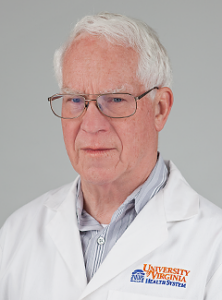Richard Santen
Richard J. Santen, MD
Professor Emeritus, Endocrinology and Metabolism
Dr. Richard Santen has run a telemedicine clinic for patients with type 2 diabetes for the last five years. He has now evaluated approximately 250 patients in this clinic. The process is to evaluate new patients on telemedicine and then to follow up with phone calls. In evaluating the success of this process, the hemoglobin A1C has come down from 10.28 ± 1.88 to 8.05 ± 1.25 ( p=0.001) in 89 patients. The average number of phone call per patient was 6. The conclusion from these data was that it is very difficult for patients to lose weight under these circumstances. This information led to the development of a research program and funding to utilize the concept of “meal replacements.” These involve the Nutrisystem diabetes diets consisting of 1200 calories for women and 1500 calories for men. The research study provides meals for 6 months at no cost to the patients. The study is highly technology based and uses the Glucommander-outpatient algorithm for decision making regarding insulin doses, a cloud-based system for electronically sending glucose, blood pressure, and weight data to the cloud, use of the DEXCOM G6 Pro system for 5-minute continuous glucose monitoring, and I-Pad educational programs. This is a pilot study for feasibility with plans to enroll 72 patients. The program involves 5 community clinics, 2 endocrinologists, and three nurse educators. If successful, a randomized, controlled trial proposal will be proposed to the NIH. In the first five patients entered, the weight loss have ranged from 9 to 32 pounds lost and an average reduction of insulin doses of 50%. The plan is to create a template for this program to potentially be utilized by clinics in financially-challenged and medically-underserved communities. We envision that retired endocrinologists can participate in programs like this and spend 5-10 hours per week “giving back” their expertise to help underserved patients with diabetes.
My past research involved the development of aromatase inhibitors for breast cancer, GnRH agonists for prostate cancer, tissue selective estrogen complex (TSEC) therapy for menopause, models to demonstrate a process of adaptation to low estrogen levels leading to tissue hypersensitivity, and description of a new syndrome of glucocorticoid hypersensitivity. These studies resulted in invitations to write Endocrine Society guidelines for treatment of menopause. Ongoing genetic studies are evaluating factors that result in massive overgrowth of breast tissue (the syndrome of gigantomastia), a process involving increased expression of estrogen receptors and aromatase in the breast tissue of these patients.
